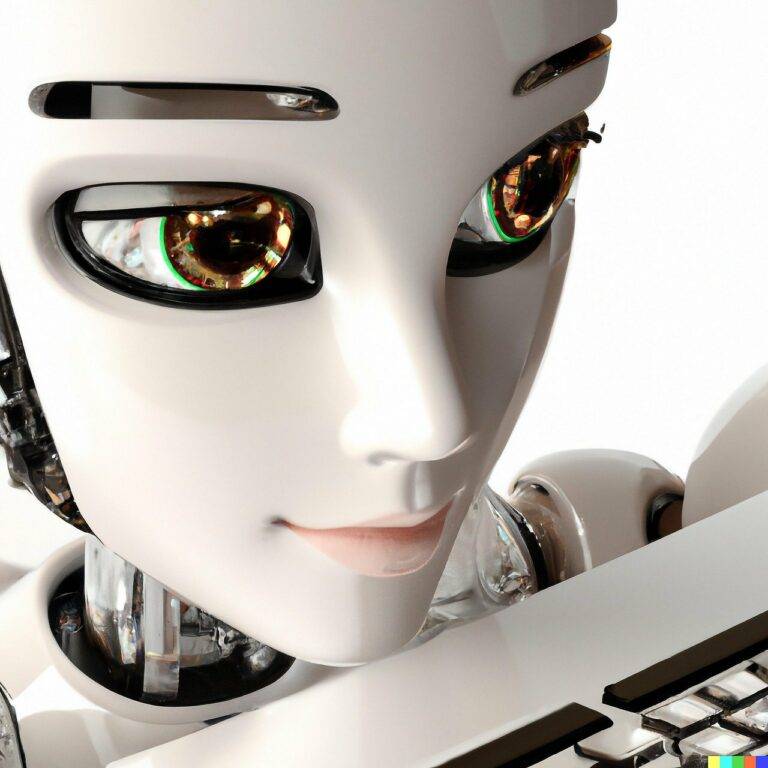The Rise of Artificial Intelligence: What It Means for the Future
Artificial Intelligence (AI) is a field of computer science that focuses on developing machines and systems capable of performing tasks that typically require human intelligence. This includes tasks such as problem-solving, learning, understanding natural language, and recognizing patterns in data. AI systems are designed to mimic human cognitive functions, with the ultimate goal of creating machines that can think, reason, and make decisions autonomously.
Over the years, AI has evolved significantly, with advancements in machine learning, neural networks, and deep learning algorithms driving progress in this field. From virtual assistants like Siri and Alexa to self-driving cars and personalized recommendations on streaming platforms, AI is increasingly integrated into our daily lives. As technology continues to advance, the potential applications of artificial intelligence are vast and diverse, spanning industries such as healthcare, finance, transportation, and beyond.
History of Artificial Intelligence
Artificial Intelligence traces its roots back to the 1950s when scientists and researchers first began exploring the concept of creating intelligent machines. The seminal Dartmouth Conference in 1956 brought together a group of pioneers in the field, including John McCarthy, Marvin Minsky, Allen Newell, and Herbert Simon, who laid the foundation for AI as an interdisciplinary field of study.
During the early decades of AI development, the focus was largely on symbolic approaches to problem-solving, with researchers aiming to program computers to mimic human reasoning processes. This era saw the creation of early AI programs like the Logic Theorist and the General Problem Solver, which demonstrated the potential for machines to perform tasks that required intelligence. Despite initial optimism, progress in AI faced setbacks in the 1970s and 1980s due to limitations in computing power and the complexity of human cognition.
Current Applications of Artificial Intelligence
Artificial Intelligence is revolutionizing various industries with its vast array of applications. In healthcare, AI is being used for disease diagnosis and personalized treatment plans. By analyzing massive amounts of data, AI can assist healthcare professionals in making more accurate diagnoses and recommending tailored treatment options for patients.
Another prominent application of AI is in the field of finance. AI algorithms are utilized for fraud detection, risk assessment, and automated trading. These algorithms can quickly process large datasets to identify suspicious activities and anomalies, helping financial institutions enhance security measures and make more informed decisions.
• In healthcare, AI is being used for disease diagnosis and personalized treatment plans
• AI can assist healthcare professionals in making more accurate diagnoses and recommending tailored treatment options for patients
• In the field of finance, AI algorithms are utilized for fraud detection, risk assessment, and automated trading
• These algorithms can quickly process large datasets to identify suspicious activities and anomalies
• AI helps financial institutions enhance security measures and make more informed decisions
What is Artificial Intelligence?
Artificial Intelligence (AI) is the simulation of human intelligence processes by machines, especially computer systems. These processes include learning, reasoning, problem-solving, perception, and language understanding.
Can you provide a brief history of Artificial Intelligence?
The concept of AI dates back to ancient times, but the term was coined in 1956. Since then, there have been several waves of AI development, each marked by different approaches and technologies. Currently, AI is being utilized in a wide range of industries and applications.
What are some of the current applications of Artificial Intelligence?
AI is being used in various fields such as healthcare (diagnosis and treatment planning), finance (fraud detection and algorithmic trading), transportation (autonomous vehicles), customer service (chatbots), and many more. The technology is constantly evolving and expanding into new areas.





